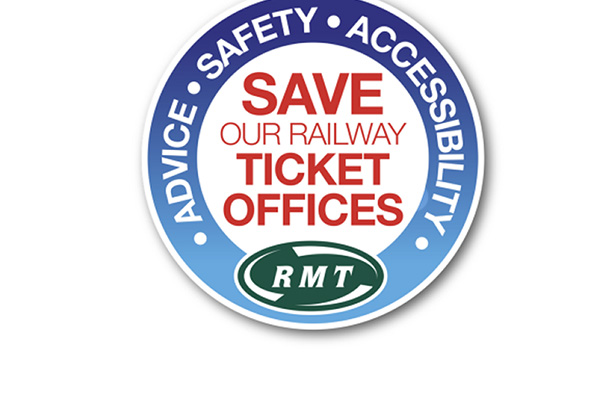The glorious victory by 750,000 people, orchestrated by very skilful trades unions, to keep railway station ticket offices open, is important for a whole number of reasons – not just the obvious ones of convenience to passengers and the retention of accumulated expertise behind the counters of people who really understand our byzantine railway system and its pricing apparatus.
We’ll come to that convenience and expertise in a moment. But first to the victories – the smallest one first. This is a victory over the widespread use of the most dismal jargon by a public body, the Rail Delivery Group, which should be ashamed of itself. It tied itself to the revolting phrase ‘customer focussed stations’ as it explained how shutting ticket offices was better than having them.
The RDG, comprising train company owners, loved this kind of language.
‘These proposals are designed to move staff out of ticket offices and onto station platforms and concourses to support better, face-to-face interactions, with the potential to close ticket offices in a number of locations. New, multi-skilled ‘customer help’ roles – which are already in place at many stations – will mean staff are able to help more customers across a whole range of needs, from buying tickets, to offering travel advice and helping those with accessibility needs. If accepted, the proposed changes would be phased in gradually. Ticket office facilities will remain open at the busiest stations and interchanges, selling the full range of tickets.’
The RMT union, led by the saintly Mick Lynch, used much more robust language and described the proposals for what they were, a cost cutting, staff slicing plan to deliver better dividends and salaries for top management of the rail companies.
But back to the big victory. A lucky leak in early 2022 revealed that the government wanted 860 ticket offices closed to save money. Individuals and organisations started mobilising. In Scotland, a consultation revealed that pretty much no one wanted the closures and ScotRail, not wanting a prolonged fight, did a sensible U-turn. In England, common sense did not prevail.
The Rail Delivery Group, egged on by a government keen to cut costs wherever it sees them, initially set up a consultation period of just three weeks for the summer of 2023. Uproar ensued and the period was extended by just over a month. It was enough time for campaigning bodies like Transport for All to get cracking. They asked to meet the Secretary of State for Transport; they asked the Department for Transport for the impact assessment on the travelling of disabled passengers and were told that it would not be ‘helpful’ to publish it. Probably because it showed how difficult life would be for disabled and other passengers if ticket offices shut. People were asked to write to their MPs. Then they were asked to join the consultation – and they did.
So a great victory for sensible rail travel has been won. But two other victories have as well. One is the retention of the accumulated expertise of station staff in ticket offices, able now to continue to advise and recommend, exercise agency in what they tell passengers, and guide a service vital to a modern economy. These staff have not been de-skilled nor marginalised to some loitering position on the station forecourt. Their training and expertise have been retained.
But the main victory is indeed ideological. It has in this one area forced the retreat of the primacy of financialised systems which funnel money upwards to an investor and senior managerial cadre, usually in the guise of efficiency savings. For which read job cuts and low salaries. Our railway system is essential to the economy and the social fabric of the UK. It is not a cash cow for dividends and it is not a financial asset to be stripped.
It is our system and it must work for us. In this instance, it has, which is why the ticket office campaign has scored such a mighty victory.














